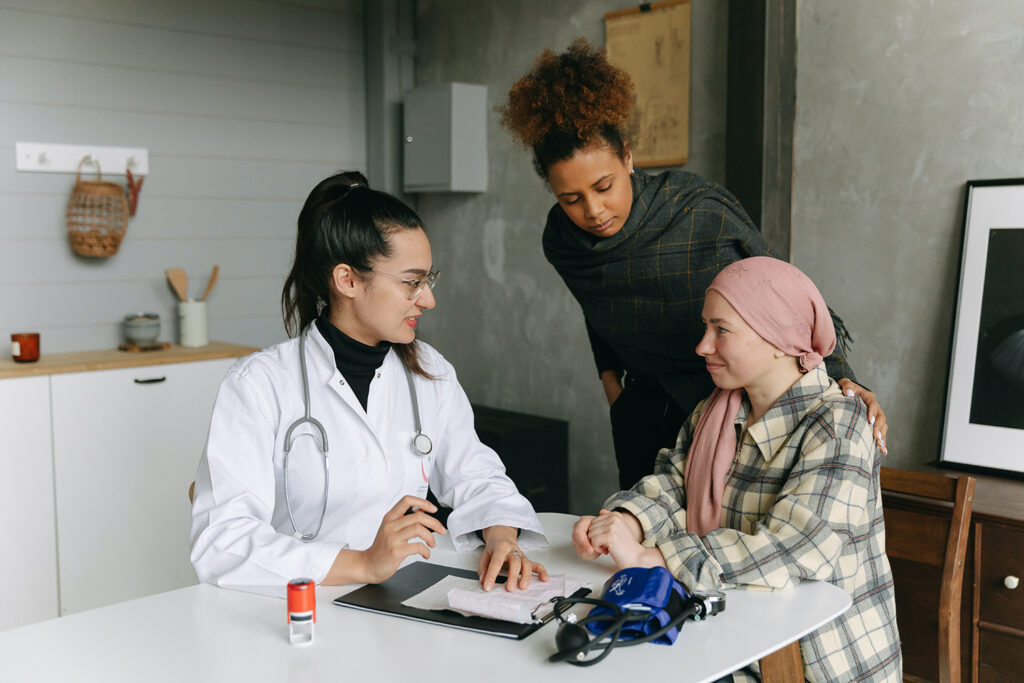
A cancer diagnosis is life changing. While advances in treatment have helped improve outcomes, patients still face many challenges, especially when it comes to managing their overall health during treatment.
Cancer care can be lifesaving, but many patients experience a range of adverse side effects due to the nature of the chemotherapy, radiation and other prescribed anti-cancer medicines.
These side effects vary greatly and can affect organs and parts of our body that are not directly linked to the cancer. Everyone’s experience with cancer treatment is unique, however, some common side effects do exist and may include temporary hair loss, digestive discomfort, fatigue, and even short- or long-term heart damage.
Heart Disease and Cancer Treatment
In order to maintain heart health during treatment, it is important to regularly attend follow-up appointments and screenings. This will allow your doctor the chance to continually monitor your condition and make note of any changes and to treat you accordingly.
While cancer treatments are targeting the cancer cells in your body, chemotherapy, immunotherapy, and other cancer-directed treatments can cause damage to other areas of the body, like the heart.
Treatments can lead to heart-specific issues like high blood pressure, heart failure and arrhythmias (irregular heartbeat). Risk factors that can help determine the extent of the damage related to cancer treatment include:
- Type of cancer you have – Breast, prostate and uterine cancers have a higher risk of heart complications than other types of cancer.
- Age at diagnosis – Diagnoses that are received by those older in age have the highest risk for developing cardiovascular disease.
- Timing – The risk of heart related issues is highest during the first year after a cancer diagnosis.
Key Components of Cardio-Oncology
While not every cancer treatment causes heart damage, and not every cancer patient or survivor will develop heart disease, a special field of medicine known as cardio-oncology has developed to investigate and support cancer patients through treatment who are at risk of developing cardiac toxicities.
Cardio-oncology is the collaboration of cardiovascular and cancer treatment services. This special team provides integrated care before, during, and after cancer treatment to focus on protecting your heart health.
Anyone undergoing treatment that may weaken the heart, has an existing cardiovascular condition, or is at higher risk of heart issues can be referred to the cardio-oncology team. Major elements of the program include:
- An initial evaluation of your heart health history and risk factors prior to cancer treatment.
- A proactive care plan for all stages of cancer treatment that address potential risks from therapies.
- Ongoing imaging and diagnostic screenings of the heart.
- Heart treatments, if necessary, designed for cancer survivors.
Your cancer care team will help create a plan customized to your personal case and will always prioritize your overall health and wellbeing. Cardio-oncology physicians are continually updating their knowledge base to introduce more preventive measures and have established protocols to help streamline the cardio-oncology treatment process.
UPMC Center for Cardio-Oncology services are available by referral. Those undergoing cancer treatment should speak with their oncologist to see if participating in the program is right for them.
For more information on cardio-oncology services available at UPMC in North Central Pa., visit UPMC.com/CardioOncologyNCPA.




